EU Making Last Attempts To Revive Iran Talks - Borrell
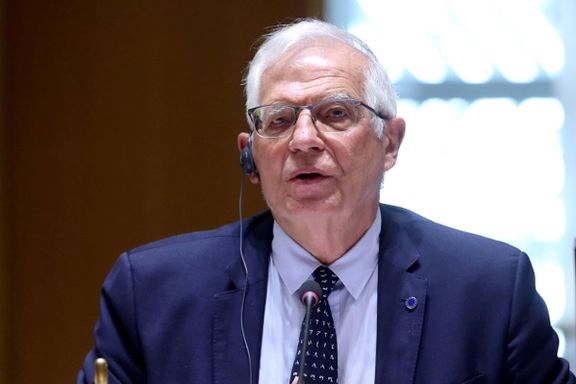
The EU foreign policy chief says he is seeking a “middle way” to end the deadlock in Vienna talks to restore the nuclear deal between Iran and world powers.

The EU foreign policy chief says he is seeking a “middle way” to end the deadlock in Vienna talks to restore the nuclear deal between Iran and world powers.
Josep Borrell told the Financial Times that the impasse threatens to jettison more than a year of European diplomatic efforts to seal the deal.
He said he wanted EU negotiator Enrique Mora to visit Tehran to discuss the remaining issues but Iran “was very much reluctant”, describing the diplomatic push as “the last bullet”.
“We cannot continue like this forever, because in the meantime Iran continues developing their nuclear program”, Borrell warned,
He reiterated the possibility of a scenario whereby the designation on Iran’s Revolutionary Guard is lifted, but other parts of the organization, which has several arms across the security apparatus and a sprawling business empire, will remain under the sanctions.
Negotiations, which started in Vienna in April 2021 to revive the Obama-era nuclear deal, JCPOA, have been on a protracted pause since March 11, as the Islamic Republic demanded removing its Revolutionary Guard (IRGC) from the US list of terrorist organizations.
Iran says the talks have not stopped but continue at a different pace through the exchange of written messages with the Americans through the European Union representative.

The Biden administration's negotiating team have reportedly acknowledged in private that an agreement that would go beyond curtailing Iran’s nuclear program is no longer possible.
Politico cited multiple people familiar with classified Congress briefings on the subject that the two Iran-related motions passed in the Senate on Wednesday were a warning shot to the US team negotiating restoring the 2015 agreement with Tehran.
Although the motions were non-binding, the vote was seen as a test run of the bipartisan rebuke that would likely happen if Washington and Tehran clinch an agreement that does not address Iran’s non-nuclear activities and removes Iran’s Revolutionary Guard (IRGC) from the list of foreign terrorist organizations.
The measures -- that for the first time forced lawmakers to go on record about the key sticking points in the year-long negotiations in Vienna -- were also hailed as modest victory for Republicans who have been urging the Biden administration to walk away from the talks, now in limbo for weeks now.
The first vote on Wednesday was proposed by Senator Ted Cruz that called for maintaining terrorism-related sanctions on Iran’s Central Bank to limit Tehran’s cooperation for China, while the other – led by Senator James Lankford instructed Senate conferees to make sure that a House bill would include language that the Biden administration cannot remove the terror designation of the IRGC.
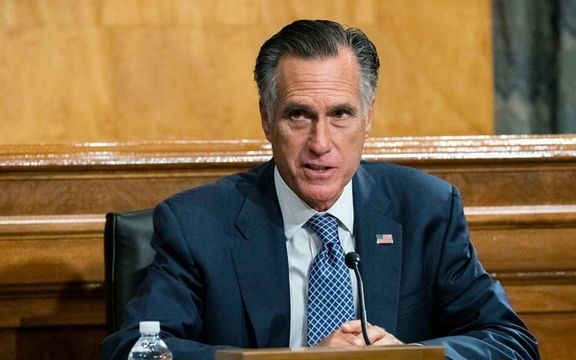
Republican senator Mitt Romney tells Iran International that the United States is committed to continue pressuring Iran to stop its malign activities across the Middle East.
Romney added that "there is a commitment on the part of our nation to continue to pressure Iran to move away from the insanity of developing nuclear weapons and pursuing a terror agenda in the Middle East and throughout the world”.
He made the remarks in reference to two motions that were passed in the Senate on Wednesday. First, was proposed by Senator Ted Cruz that called for maintaining terrorism-related sanctions on Iran’s Central Bank to limit Tehran’s cooperation for China, while the other – led by Senator James Lankford instructed Senate conferees to make sure that a House bill would include language that the Biden administration caqnnot remove the terror designation of Iran’s Revolutionary Guard (IRGC).
Kentucky Senator Rand Paul, who voted against the motion about the IRGC, told Iran International’s correspondent Arash Alaei that “the problem with dictating all of the things that could be negotiated, in advance, prevents or makes it less likely to have any diplomatic agreement”.
“I voted against precluding certain items that might be negotiated because I think if you preclude those in advance... there would be no negotiations with Iran or never any agreement”, Paul said.
He added that “it is a mistake to legislate away things that could be negotiated”.
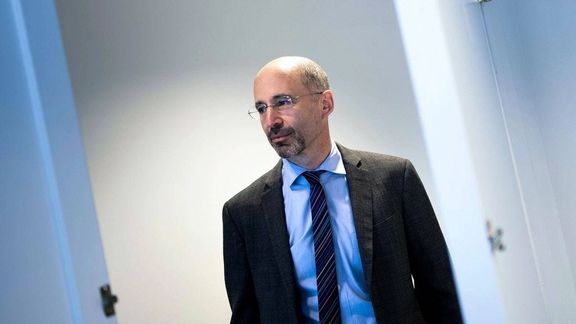
A new article has shed light on some disagreements within the US State Department regarding the Iran policy and the US negotiating team in Vienna.
The Al-Arabia article published on Thursday cited US diplomats and sources close to several former and current officials that there is a growing frustration within the State Department due to the centralized decision-making in the hands of only a few officials.
At least three members of the Iran negotiating team, which Special Envoy Robert Malley leads, have left in recent months, namely Richard Nephew, Ariane Tabatabai, and Dan Shapiro.
Nephew, who is known as the architect of Washington’s sanctions against Iran, left his position as the deputy to Malley on December 6 but in January he announced that his decision was “due to a sincere difference of opinion concerning policy.”
According to Al-Arabia sources, Tabatabai decided to leave the team because Malley allowed Russia’s ambassador in Vienna to take the lead on the talks, and Shapiro, a former US ambassador to Israel, also left his role as a senior advisor to Malley after about seven months. The unnamed sources said there was dissatisfaction among the negotiating team over Malley’s unwillingness to listen to opposing points of view.
Nephew told Al Arabiya that he will not comment about the Vienna talks “out of respect for the fact that the negotiations are ongoing and any public comments that I might make could unfairly prejudice those talks or affect the US position.”
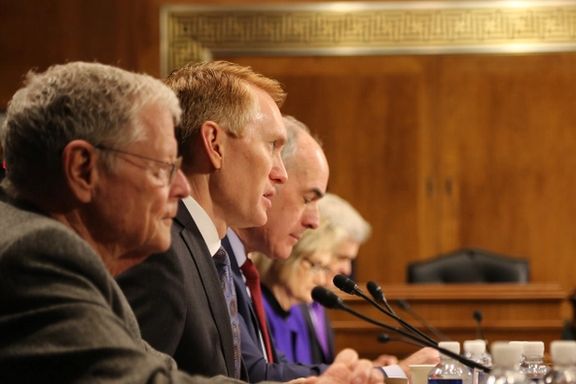
The United States Senate Wednesday sent a strong message to the Biden administration opposing its current negotiating posture on the Iran nuclear deal.
The Senate passed a non-binding measure as an instruction to Senate representatives who will work with the House on a larger bill. It secured the votes of 16 Democrats for a total of 62 senators in favor.
Important Democrats such as Senate Majority Leader Chuck Schumer (D-NY) and Sens. Richard Blumenthal (D-CT), Cory Booker (D-NJ), Ben Cardin (D-MD), Chris Coons (D-DE), among others voted for the measure.
The measure introduced by Sen. James Lankford (R-OK) opposes entering into an agreement with Iran that only addresses its nuclear program, leaving out the issue of ballistic missiles and regional role, and demands that US sanctions on the Revolutionary Guard (IRGC) not be removed.
The House of Representative and the Senate are set to push forward with HR 4521, a long-stalled bill authorizing hundreds of billions of dollars to boost the country's ability to compete with Chinese technology, with Senate votes on motions addressing issues including energy policy and Iran sanctions.
This requires reconcilitation between the House resolution and Senate demands to reach at a final bill. Wednesday’s Senate votes on sevaral measures are instructions to its conferees when they meet to reconcile with the House.
The Lankford measure that was passed with a strong majority was one of these instructions and told the Senate conferees to insist on "provisions addressing the full range of Iran’s destablizing activities, including development of the means of delivery for [nuclear] weapons…support for terrorism, and evasion of sanctions…in the trade of petroleum products with the People’s Republic of China."
It also instructed that sanctions on the Islamic Revolution Guard Corps not be lifted and not to revoke its designation as a Foreign Terrorist Organization.
Earlier on Wednesday, the Senate voted 86-12 - with strong bipartisan support - for a similar "motion to instruct", sponsored by Republican Senator Ted Cruz, seeking a report on terrorism-related sanctions on Iran and saying such sanctions are necessary to limit cooperation between China and Iran.
If they become law, the Lankford and Cruz provisions could complicate delicate negotiations on the Iran nuclear deal, although western officials have largely lost hope that the pact can be resurrected, four years after former Republican President Donald Trump abandoned it in 2018.
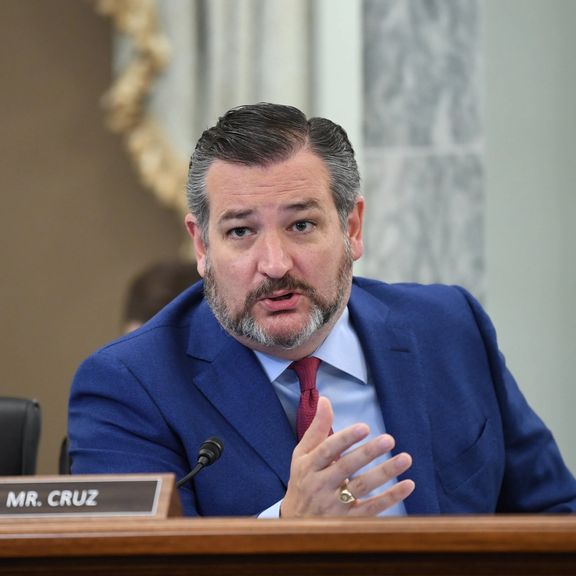
The US Congress edged closer on Wednesday toward completing a long-stalled bill that among other issues would request a government report on Iran‘s role in terorism.
Although the motions are not binding, they convey a sense of what senators would like to see in the final bill and what could keep it from getting enough votes to become law.
In one of an expected 28 votes, the Senate voted 86-12 - with strong bipartisan support - for a "motion to instruct", sponsored by Republican Senator Ted Cruz, seeking a report on terrorism-related sanctions on Iran and saying such sanctions are necessary to limit cooperation between China and Iran.
If it became law, the provision could complicate delicate negotiations on the international Iran nuclear deal, although western officials have largely lost hope that the pact can be resurrected, four years after former Republican President Donald Trump abandoned it in 2018.
Negotiations, which started in Vienna in April 2021 to revive the Obama-era nuclear deal, JCPOA, have been on a protracted pause since March 11, as the Islamic Republic demanded removing its Revolutionary Guard (IRGC) from the US list of terrorist organizations.
Sen. Cruz before the vote called on lawmakers to vote "Yes" if they want terrorism sanctions on Iran’s Revolutionary Guard to remain, or "No" if they want to lift those sanctions. He also accused the Biden administration of refusing to enforce oil export sanctions on Iran, allowing it to sell more than a million barrels of crude a day.
Iran International has also obtained text of a Motion to Instruct Senate Conferees by Cruz that calls for identifying "major areas of diplomatic, energy, infrastructure, banking, economic, military and space cooperation…between Iran and China, regarding US policy to limit such cooperation…through terror-rekated sanctions imposed on Central Bank of Iran and the IRGC, as such sanctions are necessary to limit such cooperation.“
Media reports have indicated that the US was contemplating to remove the IRGC from its Foreign Terrorist Organizations list and only keep its foreign operations arm, the Qods (Quds) Force under sanctions. Iran has rejected a partial removal of sanctions and insists on all designations to be removed.
Opposition to Biden Administration's efforts to revive the 2015 nuclear agreement has grown in recent weeks, with an overwhelming majority of Republicans and many Democrats opposing a return to deal and making concessions to Tehran.